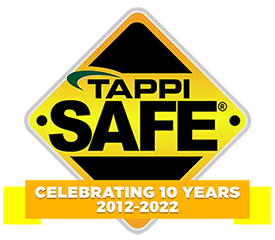 Search
Search
Use the search bar or filters below to find any TAPPI product or publication.
Filters
Content Type
Publications
Level of Knowledge
Committees
Event Type
Collections
Magazine articles

Capital cost analysis looks at recent and future trends, TAPPI JOURNAL, November 1992, Vol. 75(11)
Capital cost analysis looks at recent and future trends, TAPPI JOURNAL, November 1992, Vol. 75(11)
Journal articles

NO2 treatment of kraft pulp followed by oxygen bleaching influence of black liquor, TAPPI JOURNAL, February 1990, Vol. 73(2)
NO2 treatment of kraft pulp followed by oxygen bleaching influence of black liquor, TAPPI JOURNAL, February 1990, Vol. 73(2)
Journal articles

Low-chlorine bleaching with nitrosylsulfuric acid pretreatment, TAPPI JOURNAL, October 1991, Vol. 74(10)
Low-chlorine bleaching with nitrosylsulfuric acid pretreatment, TAPPI JOURNAL, October 1991, Vol. 74(10)
Journal articles

Effects of temperature and oxygen concentration on potassium and chloride enrichment during black-liquor combustion, December 1995 Tappi Journal [95Dec67.pdf]
Effects of temperature and oxygen concentration on potassium and chloride enrichment during black-liquor combustion, TAPPI JOURNAL, December 1995, Vol. 78(12)
Journal articles

Heavy metal analysis of inks: a survey, TAPPI JOURNAL, April 1992, Vol. 75(4)
Heavy metal analysis of inks: a survey, TAPPI JOURNAL, April 1992, Vol. 75(4)
Journal articles

Direct barcode printing on corrugated, TAPPI JOURNAL, April 1993, Vol. 76(4)
Direct barcode printing on corrugated, TAPPI JOURNAL, April 1993, Vol. 76(4)
Journal articles

Treating bleaching effluent for suspended solids and color, TAPPI JOURNAL September 1989
Treating bleaching effluent for suspended solids and color, TAPPI JOURNAL September 1989
Journal articles

Effect of papermaking and coating variables on offset-print quality - part 1: papermaking variables, TAPPI JOURNAL, October 1993, Vol. 76(10)
Effect of papermaking and coating variables on offset-print quality - part 1: papermaking variables, TAPPI JOURNAL, October 1993, Vol. 76(10)
Journal articles

Biodegradation of wood extractives from southern yellow pine by ophiostoma piliferum, TAPPI JOURNAL, January 1994, Vol. 77(1)
Biodegradation of wood extractives from southern yellow pine by ophiostoma piliferum, TAPPI JOURNAL, January 1994, Vol. 77(1)
Journal articles

Magazine articles

Kraft pulp viscosity as a predictor of paper strength: Its uses and abuses, TAPPI Journal October 2023
ABSTRACT: For bleached kraft pulps, two factors govern paper strength: the individual fiber strength, and the bond strength that adheres the individual fibers together in the paper matrix. Inherent fiber strength is related to the length of the carbohydrate polymers, also known as the degree of polymerization (DP). Average DP (DP) is inferred by performing pulp viscosity measurements. Under certain circumstances during kraft pulping and bleaching, the average polymer lengths can be shortened, resulting in lower pulp viscosity, and may indicate fiber damage. Fiber damage typically manifests itself as a reduction in tear strength for well-bonded handsheets.This paper will review the literature on how pulp viscosity can predict paper/fiber strength and how it can be used as a diagnostic tool. It can be a means to monitor pulp quality during pulping and bleaching, as well as to alert when such operations approach a critical threshold. However, viscosity losses must be carefully and judiciously analyzed. Like most diagnostic tools, viscosity measurements can be misused and abused, which can lead to incorrect inferences about intrinsic fiber strength. This review will also cover these misuses. The overall goal is to provide the papermaker a better understanding of what pulp viscosity is, how it correlates to potential sheet strength, and what its limitations are. It will be illustrated that when pulp viscosity drops below a critical value, it will indicate an appreciable deterioration in the paper’s tear and tensile strength.






